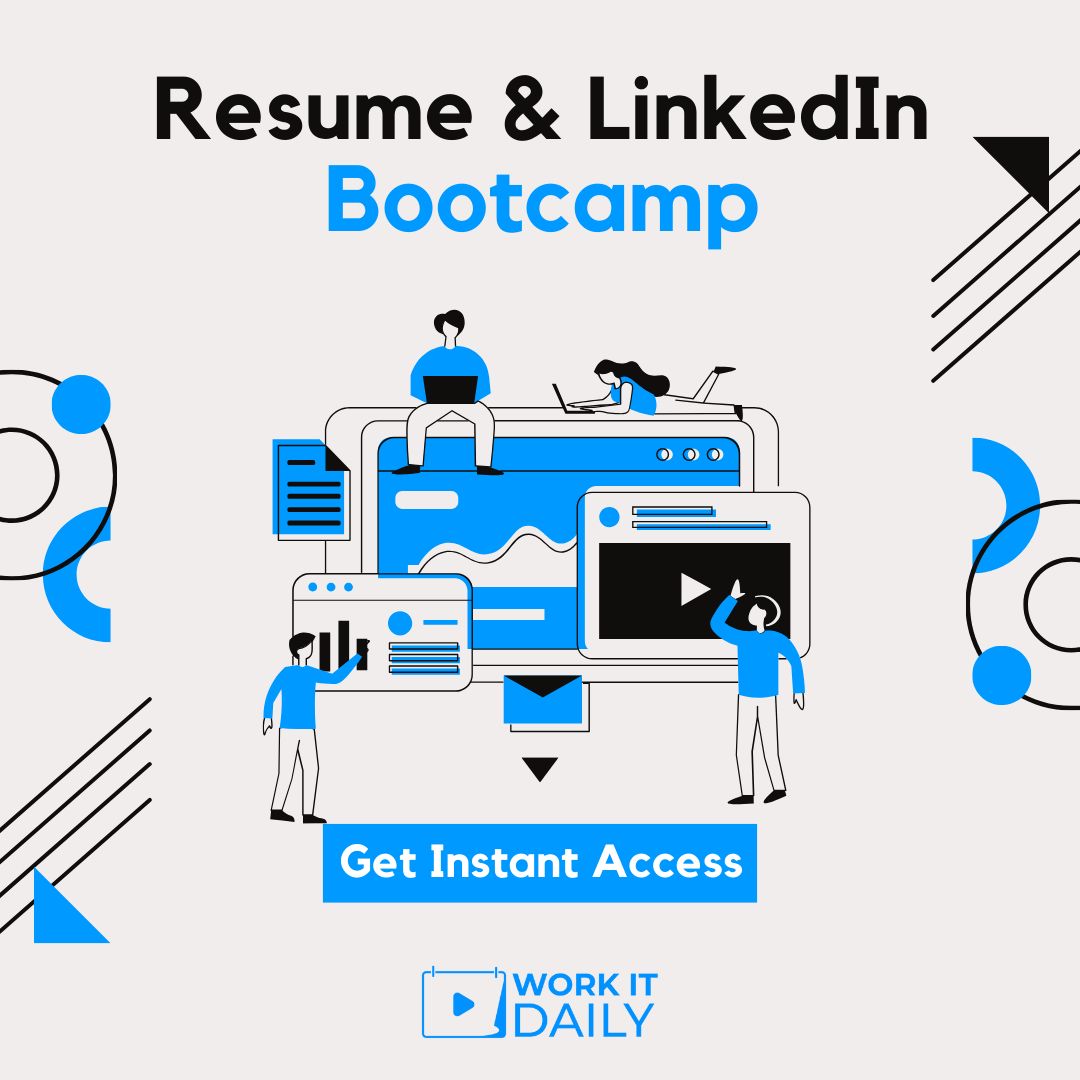
Hello Everyone & Happy Wednesday!
Let’s get right into the good stuff. And by good stuff, we mean today’s newsletter. Enjoy!
Not subscribed? Click HERE.
In Today’s Newsletter:
Why You Shouldn’t Put 20+ Years of Experience On Your Resume - This is what to do instead.
In The News - Workers are feeling lonely no matter where they work & new insights on the labor market power dynamic.
J.T. Talks Jobs - When you get auto-rejected from a job… do this!
Resources We Recommend - Get instant access to our FREE Resume & LinkedIn Bootcamp.
Resources We Recommend
Transform your resume & LinkedIn profile in under an hour! 🕐
Get FREE instant access to Work It DAILY's Resume & LinkedIn Bootcamp and discover:
The exact formula for a compelling resume that catches recruiters' attention
LinkedIn secrets that make your profile more likely to receive opportunities
Step-by-step guidance to optimize your job search materials
Don't let another opportunity pass you by. Join thousands of successful job seekers who have transformed their career prospects with our proven strategies.
Why You Shouldn't Put 20+ Years of Experience on Your Resume

As a career coach with over two decades of experience, I've seen countless resumes cross my desk. One piece of advice I find myself giving more and more these days is this: don't put 20+ years of experience on your resume. In fact, I rarely recommend including more than 15 years of work history. You might be wondering why, so let me break it down for you.
The Rapid Pace of Change in the Workplace
The business world is evolving at a rapid speed. Just think about how much has changed in the last decade alone. New technologies, systems, and processes emerge every couple of years, fundamentally altering how we work. This means that the experience you gained 10, 15, or 20 years ago may not be as relevant as you think.
When employers look at resumes, they're searching for two key things: recency and relevancy. They want to see that you have the skills and experience needed for the job right now, not a decade ago. By including 20+ years of work history, you risk highlighting outdated skills or experiences that don't align with current industry practices.
Avoiding Age Discrimination (Even If It's Unintentional)
While age discrimination is illegal, it's an unfortunate reality that some hiring managers may have unconscious biases against older workers. By limiting your resume to 15 years or less, you're putting the focus squarely on your most recent and relevant experiences, rather than potentially dating yourself.
Quality Over Quantity
Remember, your resume is a marketing document, not a comprehensive work history. Its purpose is to showcase your most impressive and relevant accomplishments to land you an interview. By focusing on your more recent roles, you can delve deeper into your achievements and responsibilities, providing a richer picture of your capabilities.
Adapting Your Interview Approach
Now, you might be thinking, "But J.T., won't they figure out I have more experience during the interview?" Absolutely, and that's okay! The key is how you present that additional experience once you're face-to-face (or screen-to-screen) with the interviewer.
The Pitfall of the "Know-It-All" Attitude
One common mistake I see seasoned professionals make is trying to showcase all their knowledge during the interview. They want to prove they're a "BMW for the price of a Honda," but this approach often backfires. Instead of impressing the interviewer, it can come across as narcissistic.
Remember, employers aren't looking for someone who knows everything. They want team players who can collaborate, adapt, and continue learning. Your extensive experience should be presented as a complement to your ability to work well with others and contribute to the company's goals.
Staying Relevant in a Changing Job Market
Job searching is a game that evolves constantly, and you need to adapt your strategies to stay competitive. This means regularly updating not just your resume, but also your LinkedIn profile, interview techniques, and overall approach to job hunting.
If you find yourself struggling to land interviews or offers, it might be time to "go back to school" and brush up on modern job search techniques. The methods that worked for you 10 or 20 years ago may not be effective in today's market.
Embracing Lifelong Learning
The most successful professionals understand that learning doesn't stop once you've accumulated years of experience. Embrace opportunities to acquire new skills, stay updated on industry trends, and demonstrate your adaptability. This mindset will serve you far better than relying solely on your past accomplishments.
Remember, your extensive experience is an asset, but it needs to be presented strategically. By focusing on your most recent and relevant roles, you'll create a more compelling narrative that resonates with potential employers.
Want to learn more about optimizing your job search strategy? Check out all of Work It DAILY's free resources linked at the bottom of this newsletter. We're here to help you navigate the ever-changing landscape of career development and land your dream job!
Go get ‘em!
J.T. O’Donnell
In The News
J.T. Talks Jobs
Meme Of The Day
Free Resources
Did somebody say FREE? Yup, we did. We’ve got live events, instant access resources, and quizzes all for FREE! Click on an image below to get started!
Thanks For Reading!
Was this email forwarded to you? SIGN UP HERE to get the ONLY career advice newsletter you'll ever need. (Yep. We're THAT good!)
Interested in reaching our audience? CLICK HERE to sponsor our newsletter.
Are you OBSESSED with our newsletter format and want to build your own? We use a tool called beehiiv and love it. You can use it too. CLICK HERE to learn more!












